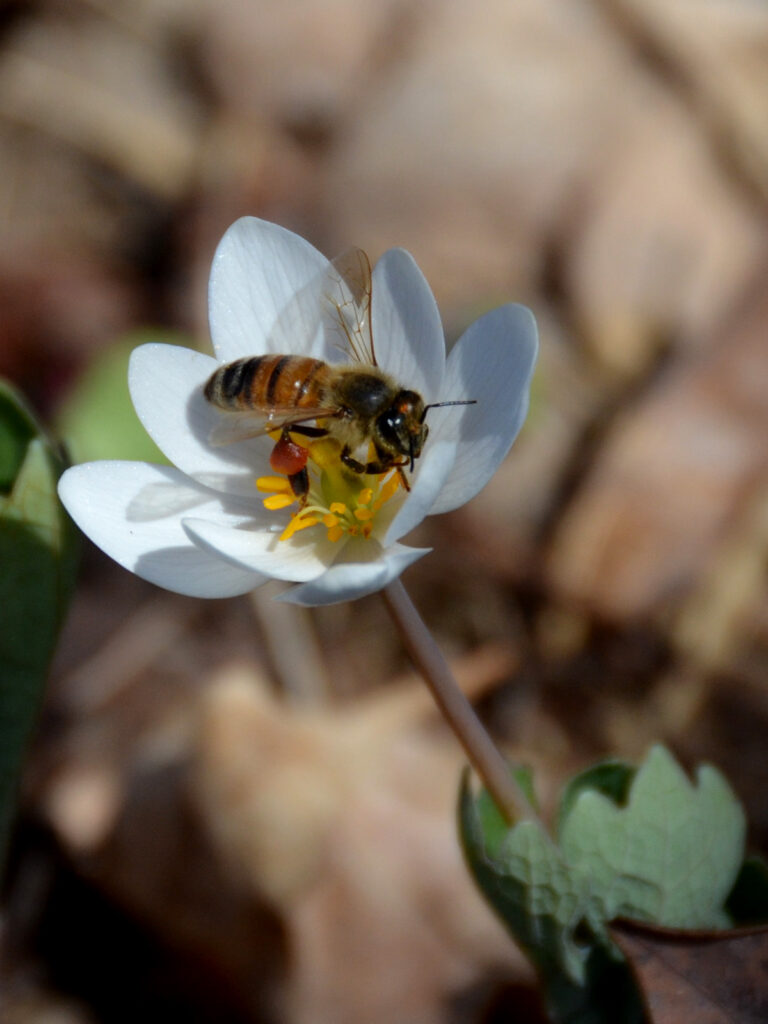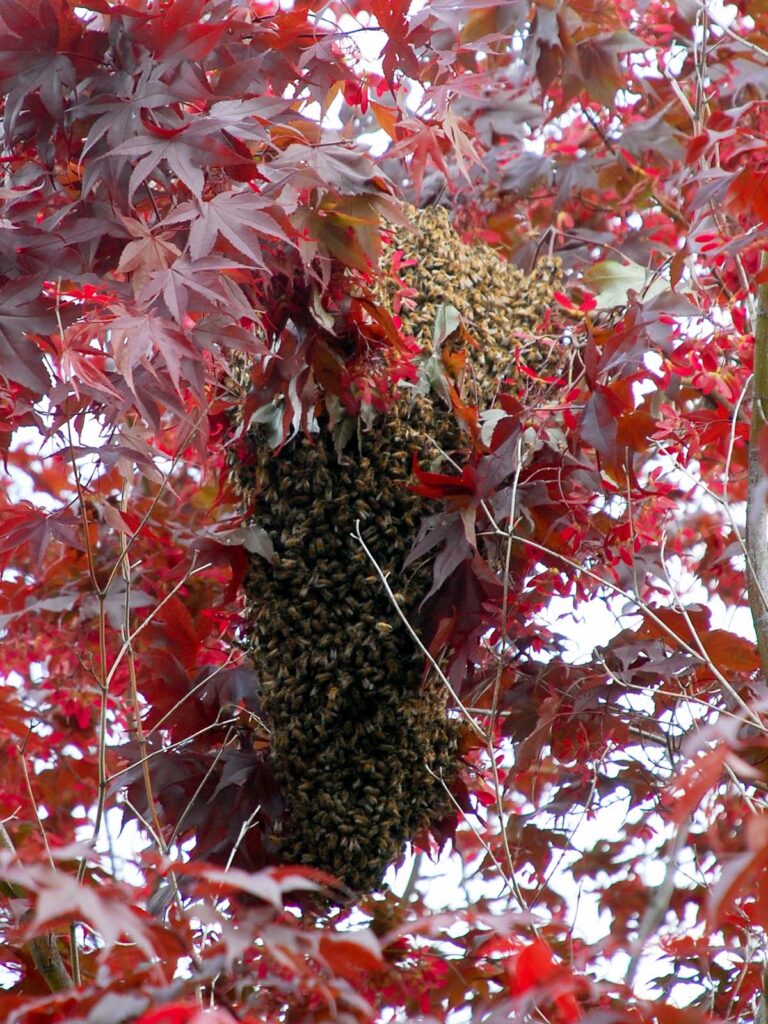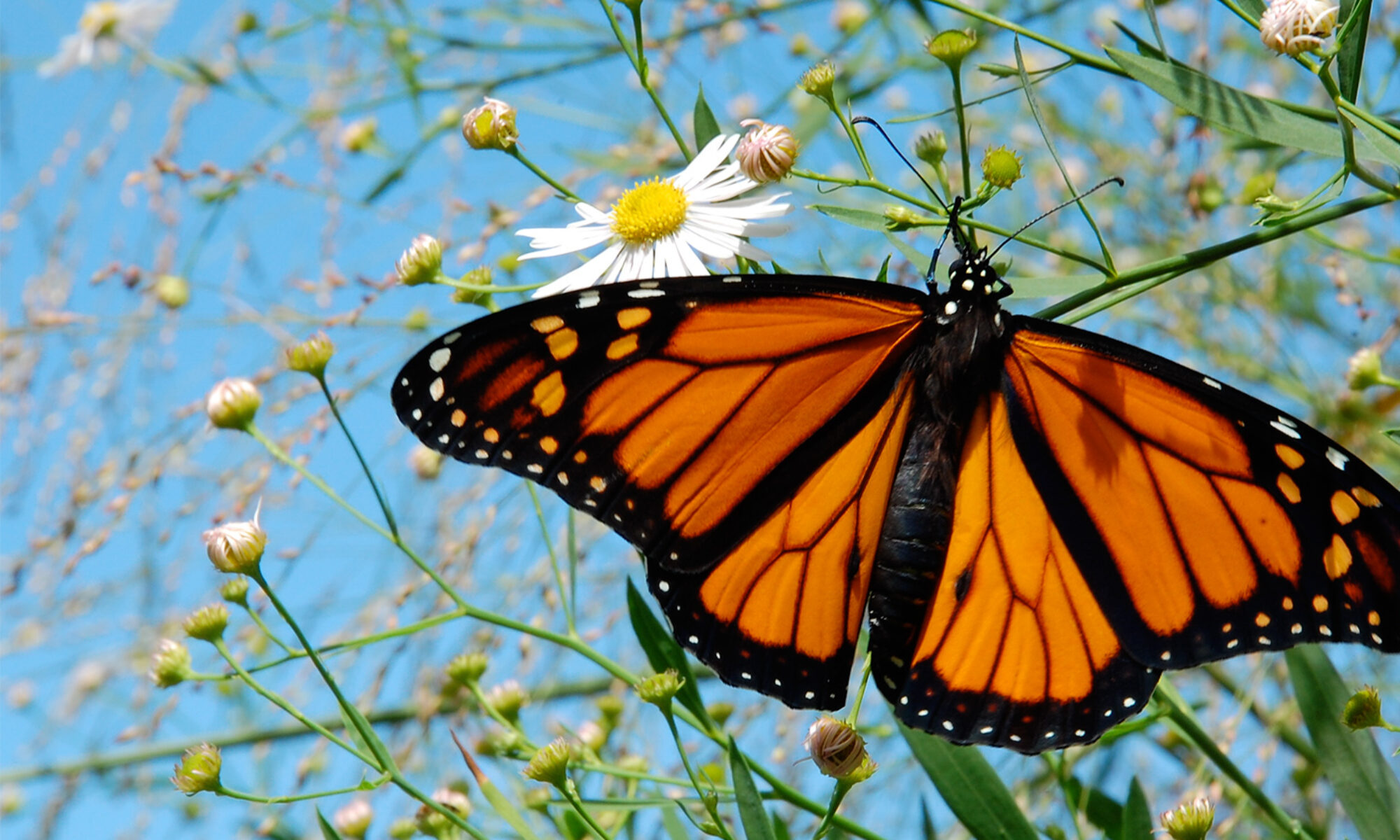Many people are surprised to learn that honey bees are NOT native to this continent.

Yes, they produce honey, and historically they’ve been important in commercial agriculture where acres and acres of one kind of plant, such as almonds, must be pollinated all at the same time. Is this kind of industrial agriculture sustainable in the long run? Probably not. [And see Cornell Danforth Lab research in the Resources section below.]
Honey bees do visit our yard, such as this one taking nectar from our bloodroot, but we focus on providing habitat for native bees, our underappreciated pollinators.

Still, when this swarm of honey bees arrived in our neighbor’s yard, we helped him find a local beekeeper who came to capture them, a benefit to everyone concerned, including the bees.
But I’m increasingly concerned about honey bees as competitors of our native bees.
Research has found that:
- Foraging by bumble bees decreased with increases in honey bees foraging.
- Bumble bees were not as likely to visit a foraging site a second time if they had encountered a competing honey bee.
- There was exploitative competition and a negative developmental or reproductive effect on native bees when confronted with honey bees.
And honey bees don’t pollinate native plants (and even some of our fruits and vegetables) that require specialist pollinators.
Resources
- Scientific American:
- The problem with honey bees
- Return of the natives: How wild bees will save our agricultural system
- Bees gone wild – Feral honeybees pose a danger to native bees and ecosystems that depend on them
- Xerces Society:
- Washington Post:
- NY Times:
- VOX:
- Smithsonian Magazine:
- Humane Gardener:
- David Suzuki Foundation:
- Choose Natives:
- Yale Environment 360:
- Backyard battle: Helping native bees thrive in a honeybee world – includes Buzz Kill, a 15-minute video. Excellent!
- Will putting honey bees on public lands threaten native bees?
- Dickinson Cty Conservation Board:
- Bumblebee Conservation Trust (a UK organization):
- National Wildlife Federation:
- Ricochet:
Reflections
Keeping honey bees to ‘save the bees’ is like raising chickens to save birds.
~ Scott Black, Ex. Dir., Xerces Society for Invertebrate Conservation
